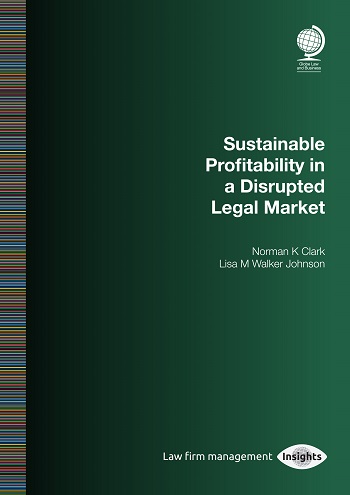
Profitability in law firms is, above all, about change. This special report presents practical strategies for law firms to protect and sustain their financial performance and profitability as changing client expectations, advanced technology, and global competitive forces are fundamentally changing the legal services industry. The authors demonstrate how the traditional factors influencing profitability remain valid, but must be adapted to new financial realities.
The report focuses not only on what sustainable profitability means, but also how to achieve it in any law firm. Sustainable profitability demands more than closer attention to the numbers, but also new approaches to managing the profound changes in the way that law firms traditionally have worked.